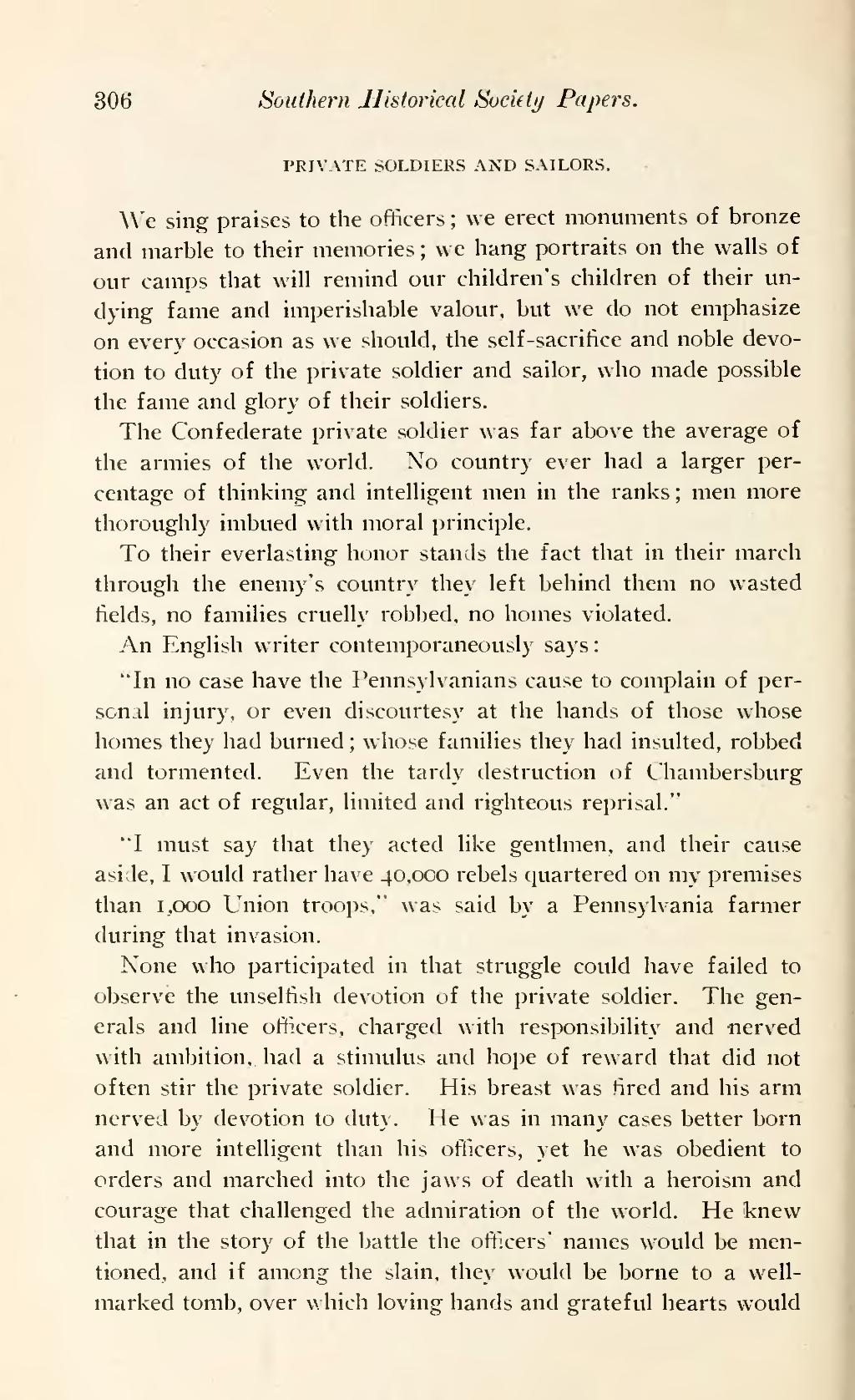PRIVATE SOLDIERS AND SAILORS.
We sing praises to the officers; we erect monuments of bronze and marble to their memories; we hang portraits on the walls of our camps that will remind our children's children of their undying fame and imperishable valour, but we do not emphasize on every occasion as we should, the self-sacrifice and noble devotion to duty of the private soldier and sailor, who made possible the fame and glory of their soldiers.
The Confederate private soldier was far above the average of the armies of the world. No country ever had a larger percentage of thinking and intelligent men in the ranks; men more thoroughly imbued with moral principle.
To their everlasting honor stands the fact that in their march through the enemy's country they left behind them no wasted fields, no families cruelly robbed, no homes violated.
An English writer contemporaneously says:
"In no case have the Pennsylvanians cause to complain of personal injury, or even discourtesy at the hands of those whose homes they had burned; whose families they had insulted, robbed and tormented. Even the tardy destruction of Chambersburg was an act of regular, limited and righteous reprisal."
"I must say that they acted like gentlmen, and their cause aside, I would rather have 40,000 rebels quartered on my premises than 1,000 Union troops," was said by a Pennsylvania farmer during that invasion.
None who participated in that struggle could have failed to observe the unselfish devotion of the private soldier. The generals and line officers, charged with responsibility and -nerved with ambition,, had a stimulus and hope of reward that did not often stir the private soldier. His breast was fired and his arm nerved by devotion to duty. He was in many cases better born and more intelligent than his officers, yet he was obedient to orders and marched into the jaws of death with a heroism and courage that challenged the admiration of the world. He knew that in the story of the battle the officers' names would be mentioned, and if among the slain, they would be borne to a well-marked tomb, over which loving hands and grateful hearts would
